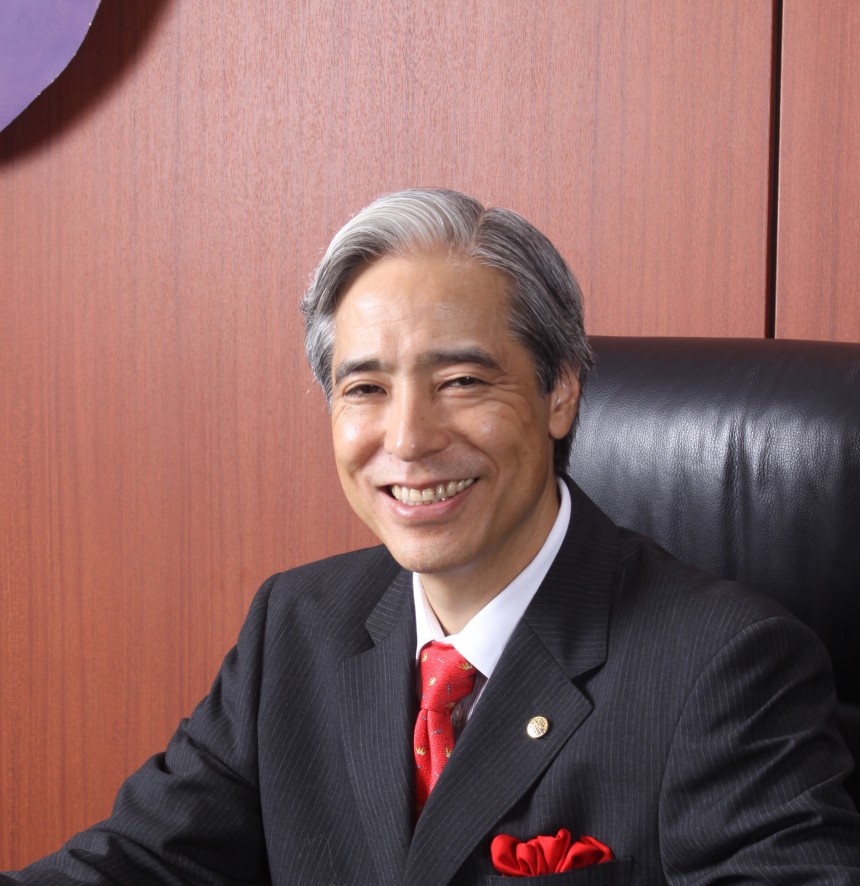
July 22, 2018
Ernest Higa Interview
A respected Tokyo businessman on the future of Japan
By Metropolis
⋅ Born October 15, 1952 in Hawaii
⋅ 3rd generation Japanese-American
⋅ Graduated from the Wharton School of the University of Pennsylvania
⋅ MBA from Columbia Business School
1985: Acquired franchise rights for Domino’s Pizza in Japan
2011: Brought Wendy’s back to Japan
Current Positions:
⋅ Board of Trustees, Showa Women’s University
⋅ Chairman and Representative Director, Wendy’s Japan K.K.
⋅ Board of Overseers, Columbia Business School
⋅ Director, Shinsei Bank, Limited
⋅ Chairman, President and CEO of Higa Industries Co., Ltd.
Ernest Higa, the renowned businessman who brought the Domino’s Pizza and Wendy’s brands to Japan, has spent decades in the Japanese market. A third generation Nikkei American from Hawaii, Higa has a bicultural background that allows him to observe the Japanese industry world both as an insider and an outsider, and this has allowed him to gain unique wisdom on what lies ahead for Japanese business. Metropolis sat down with Higa to discuss globalization, entrepreneurship and the role of women in the economy.
Bridging Japanese and American Businesses
As someone who knows the ins and outs of both the Japanese and US corporate worlds, Higa believes that the perplexing business etiquette and rigid social structures that Japanese businesses are known for may soon be a thing of the past. “Japan is and should become more like American companies,” he said. “They are becoming more concerned about shareholder value right now, corporate governance and outside board of directors. I think there’s more concern about profitability, and they’re trying to be more flexible on employment.”
However, Higa doesn’t necessarily think that fully embracing US business style is the way to go, either. “Hopefully it won’t go all of the way because America is at the other extreme too, if you look at the shareholder activists in the U.S. , the emphasis is on short term quarterly profits, hiring and firing,” he warns. “I think employee loyalty is also an important thing. Sometimes it has to be top down decision making, you can’t discuss it with everybody such as an M&A transaction, but a lot of things should be bottom up and developing consensus for operational decision making. It has to be a combination of both.”
Higa knows that this balance is a tall order. “If you look at globalization, particularly with regards to business, 80 percent of globalization is Americanization,” Higa laments. “It’s the American way of doing business, good or bad. For example, whether it’s the Chinese students, the Indian students, South Korean students — they all want to go to American business schools even when they have great institutions in their own countries. But it’s the mentality, the way of thinking when doing business and of course the network which becomes more global if you go to a US business school.”
“My hope is that Japan doesn’t go all the way to the Western way but I think there can be a happy medium.”
The Fate of Entrepreneurship in Japan
Higa recalled an incident that epitomizes how Japan perceives entrepreneurship. “When I was going out with my now-wife and her father asked me, ‘What do you do?’ and I said, ‘I’m an entrepreneur,’ he was like, ‘What?!’ It doesn’t seem like it’s very stable compared to Mitsubishi Bank. He was concerned, I don’t blame him, because in Japan they didn’t even have a word for entrepreneur back then.”
Despite this, Higa believes that entrepreneurship in Japan has started to become more accepted than in the past.
“In Japan, in the past, the best and brightest went to Todai (Tokyo University) and then went into government. The second best and brightest went to large corporations like Mitsubishi and so on. And if you didn’t make it maybe you would start your own ramen shop or something. It was like the US in the 1950s — the idea was not to do your own thing but to join the government or a large corporation.
“In the last 25 years of recession and deflation, the one good thing is great human capital could not get jobs due to the downsizing of both the government and large corporation so they had to start their own business and become entrepreneurs. It might be changing now again due to the labor shortage, but there is this spark of entrepreneurship in Japan.”
Higa says that one of the biggest obstacles to this rise of entrepreneurship is the public perception of failure. “Once you go bankrupt in Japan, it’s a kiss of death — we’re not going to lend you money anymore, no one will buy or sell to you, you’re done. In the US, bankruptcy can be a badge of honor. It means you learned your lesson, you’re going to be wiser the second time, third time around. You can come back many times and still people might finance you. In Japan, if you blow it, that’s it. Done.”
Womenomics
Higa believes that Japanese companies can grow exponentially by investing in women. “Women are the most underutilized asset in Japan. They’re smarter than the guys, they work harder than the guys,” he says.
“If they’re able to empower women, Japan’s GDP can grow by like 13 percent. Can you imagine it? We’re trying to aim for 2 percent inflation here. But if the third largest economy can grow by double digits that’s huge, despite the demographic,” Higa said, quoting research by Kathy Matsui of Goldman Sachs. “But the problem is, how can you empower women? That’s not so easy. There’s a shortage of childcare and infrastructural problems … but necessity is the mother of invention, so this necessity is driving companies.”





